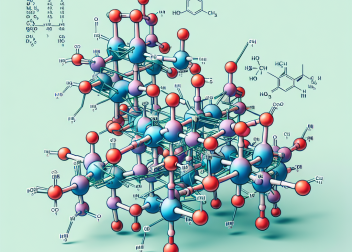What is Delta CBD
Introduction
Delta CBD is a specific type of CBD (cannabidiol) that refers to the delta-8 isomer of CBD. It is a minor cannabinoid found in hemp plants and is known for its potential therapeutic benefits. Delta CBD is gaining popularity due to its unique properties, which may offer a more balanced and milder experience compared to delta-9 THC. However, it is important to note that Delta CBD products may still have psychoactive effects and should be used responsibly.
The Benefits of Delta CBD: Exploring its Potential Health Effects
Delta CBD, also known as delta-9-tetrahydrocannabinol, is a compound found in the cannabis plant that has been gaining attention for its potential health benefits. While CBD, or cannabidiol, has been widely studied and praised for its therapeutic properties, Delta CBD is a lesser-known cannabinoid that is starting to make waves in the medical community.
One of the main benefits of Delta CBD is its ability to provide pain relief. Many individuals suffering from chronic pain have found relief through the use of CBD products, and Delta CBD is no exception. It works by interacting with the body’s endocannabinoid system, which plays a crucial role in regulating pain and inflammation. By targeting specific receptors in the body, Delta CBD can help reduce pain and improve overall well-being.
In addition to pain relief, Delta CBD has also shown promise in reducing anxiety and promoting relaxation. Many people struggle with anxiety disorders, and finding an effective treatment can be challenging. However, studies have shown that Delta CBD can help calm the mind and reduce feelings of anxiety. It does this by interacting with receptors in the brain that are responsible for regulating mood and stress levels. This makes Delta CBD a potential natural alternative to traditional anxiety medications.
Furthermore, Delta CBD has been found to have anti-inflammatory properties. Inflammation is a natural response by the body to injury or infection, but chronic inflammation can lead to a variety of health issues. By reducing inflammation, Delta CBD may help alleviate symptoms associated with conditions such as arthritis, inflammatory bowel disease, and even acne. This makes it a promising option for those seeking natural remedies for inflammatory conditions.
Another potential benefit of Delta CBD is its ability to promote better sleep. Many individuals struggle with insomnia or other sleep disorders, and finding a solution can greatly improve their quality of life. Delta CBD has been shown to have sedative effects, helping individuals fall asleep faster and stay asleep longer. By promoting a more restful sleep, Delta CBD can help individuals wake up feeling refreshed and rejuvenated.
It is important to note that while Delta CBD shows promise in providing these health benefits, more research is needed to fully understand its effects. The medical community is still exploring the potential of this compound, and it is always recommended to consult with a healthcare professional before incorporating any new supplements or treatments into your routine.
In conclusion, Delta CBD is a compound found in the cannabis plant that has shown potential in providing a range of health benefits. From pain relief and anxiety reduction to anti-inflammatory properties and improved sleep, Delta CBD offers a natural alternative for those seeking relief from various health conditions. While more research is needed, the growing interest in Delta CBD suggests that it may become a valuable tool in the medical field. As always, it is important to consult with a healthcare professional before starting any new treatments.
Understanding the Science Behind Delta CBD: How it Differs from Other Cannabinoids

Delta CBD, also known as delta-9-tetrahydrocannabidiol, is a fascinating compound that has been gaining attention in the world of cannabis research. While most people are familiar with the more well-known cannabinoid, delta-9-tetrahydrocannabinol (THC), Delta CBD offers a unique and distinct set of properties that set it apart from its counterparts.
To understand the science behind Delta CBD, it’s important to first grasp the basics of cannabinoids. Cannabinoids are chemical compounds found in the cannabis plant that interact with the body’s endocannabinoid system. This system plays a crucial role in regulating various physiological processes, such as mood, appetite, pain sensation, and immune response.
Delta CBD is structurally similar to THC, but it differs in one key aspect: its psychoactive effects. Unlike THC, which is known for its intoxicating properties, Delta CBD does not produce the same mind-altering effects. This makes it an appealing option for those seeking the potential therapeutic benefits of cannabis without the unwanted high.
One of the reasons why Delta CBD lacks psychoactive effects is its interaction with the CB1 receptors in the brain. THC binds tightly to these receptors, leading to the euphoric sensations commonly associated with marijuana use. Delta CBD, on the other hand, has a weaker affinity for CB1 receptors, resulting in a more subtle impact on the brain.
Another intriguing aspect of Delta CBD is its potential anti-anxiety properties. Research suggests that Delta CBD may have anxiolytic effects, meaning it could help reduce feelings of anxiety and promote a sense of calm. This makes it an appealing option for individuals dealing with anxiety disorders or those simply looking to unwind after a long day.
Furthermore, Delta CBD has shown promise in the realm of pain management. Studies have indicated that it may possess analgesic properties, meaning it could help alleviate pain and inflammation. This makes it a potential alternative for individuals seeking natural remedies for chronic pain conditions, such as arthritis or fibromyalgia.
In addition to its potential therapeutic benefits, Delta CBD also offers a unique flavor profile. Many users describe its taste as earthy and slightly sweet, making it a pleasant addition to various cannabis-infused products. Whether it’s added to edibles, tinctures, or vape oils, Delta CBD can provide a delightful sensory experience for those seeking a more enjoyable way to consume cannabinoids.
It’s worth noting that while Delta CBD has shown promise in various areas, more research is needed to fully understand its potential benefits and limitations. As with any cannabinoid, it’s important to consult with a healthcare professional before incorporating Delta CBD into your wellness routine, especially if you have any underlying medical conditions or are taking medications.
In conclusion, Delta CBD is a fascinating cannabinoid that offers a unique set of properties. Its lack of psychoactive effects, potential anti-anxiety properties, and analgesic potential make it an appealing option for individuals seeking the potential therapeutic benefits of cannabis without the unwanted high. As research continues to unfold, Delta CBD may become an increasingly popular choice for those looking to enhance their well-being naturally.
Exploring the Legal Status of Delta CBD: What You Need to Know
Delta CBD, also known as delta-8-tetrahydrocannabinol, is a compound derived from the hemp plant that has been gaining popularity in recent years. With the increasing interest in CBD products, it’s important to understand the legal status of Delta CBD and what you need to know before incorporating it into your wellness routine.
First and foremost, it’s crucial to note that the legal status of Delta CBD varies from state to state. While some states have embraced the compound and allowed its sale and consumption, others have placed restrictions or outright banned it. This discrepancy can make it confusing for consumers who are interested in trying Delta CBD products.
In states where Delta CBD is legal, it is typically regulated similarly to CBD products. This means that it must contain less than 0.3% delta-9-tetrahydrocannabinol (THC), the psychoactive compound found in marijuana. This low THC content ensures that Delta CBD products do not produce the same intoxicating effects as marijuana.
However, it’s important to be aware that Delta CBD can still have psychoactive effects, albeit milder than those associated with delta-9-THC. Some users report feeling a sense of relaxation and euphoria when consuming Delta CBD, while others find it helps with pain relief and anxiety reduction. These effects can vary from person to person, so it’s essential to start with a low dosage and gradually increase if needed.
Despite its potential benefits, the legal status of Delta CBD has raised concerns among some lawmakers and regulatory bodies. They argue that the compound falls into a legal gray area, as it is derived from hemp but can still produce psychoactive effects. As a result, they have proposed stricter regulations or even bans on Delta CBD products.
One reason for this concern is the potential for misuse or abuse of Delta CBD. While it is less potent than delta-9-THC, some individuals may still seek out Delta CBD products for recreational purposes. This has led to calls for increased regulation to ensure that Delta CBD is only used for medicinal or therapeutic purposes.
Another concern is the lack of research on Delta CBD and its long-term effects. As with any new compound, it’s important to understand its potential risks and benefits fully. While initial studies suggest that Delta CBD is generally safe, more research is needed to determine its efficacy and potential side effects.
In response to these concerns, some states have taken a proactive approach to regulate Delta CBD. They have implemented testing requirements to ensure that products contain accurate labeling and do not exceed the legal limit of delta-9-THC. Additionally, they have established licensing and registration processes for manufacturers and retailers to ensure compliance with regulations.
In conclusion, the legal status of Delta CBD is a complex and evolving issue. While it is legal in some states, others have placed restrictions or bans on its sale and consumption. As a consumer, it’s important to be aware of the laws in your state and to purchase Delta CBD products from reputable sources. Additionally, it’s crucial to start with a low dosage and monitor your body’s response to the compound. By staying informed and responsible, you can safely explore the potential benefits of Delta CBD.
Q&A
1. What is Delta CBD?
Delta CBD refers to a specific form of cannabidiol (CBD) that is derived from hemp plants. It is a variant of CBD that has a slightly different chemical structure and may offer unique effects compared to other CBD products.
2. How is Delta CBD different from regular CBD?
Delta CBD differs from regular CBD in terms of its chemical structure and potential effects. It may have a different potency, bioavailability, and interaction with the body’s endocannabinoid system, leading to potentially distinct therapeutic benefits.
3. What are the potential benefits of Delta CBD?
The potential benefits of Delta CBD are still being researched, but it may offer similar benefits to regular CBD, such as pain relief, reduced inflammation, anxiety reduction, and potential neuroprotective effects. However, more studies are needed to fully understand its specific effects and potential benefits.
Conclusion
Delta CBD is a type of CBD product that is derived from hemp plants. It contains delta-9-tetrahydrocannabinol (THC), which is a psychoactive compound found in cannabis. Delta CBD is known for its potential therapeutic benefits, including pain relief, anxiety reduction, and relaxation. However, it is important to note that the legality and availability of Delta CBD may vary depending on local regulations.



